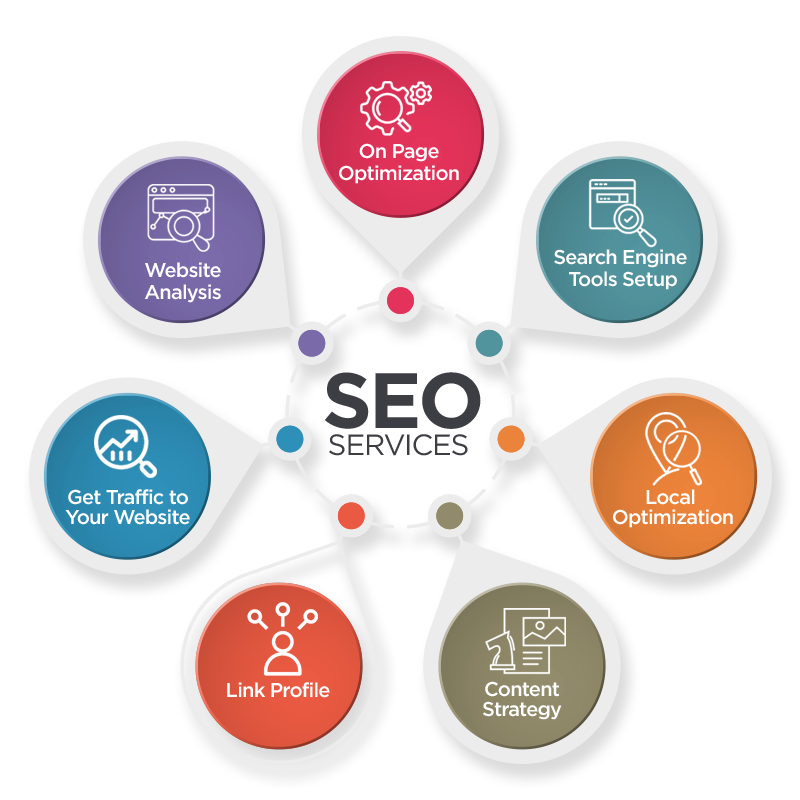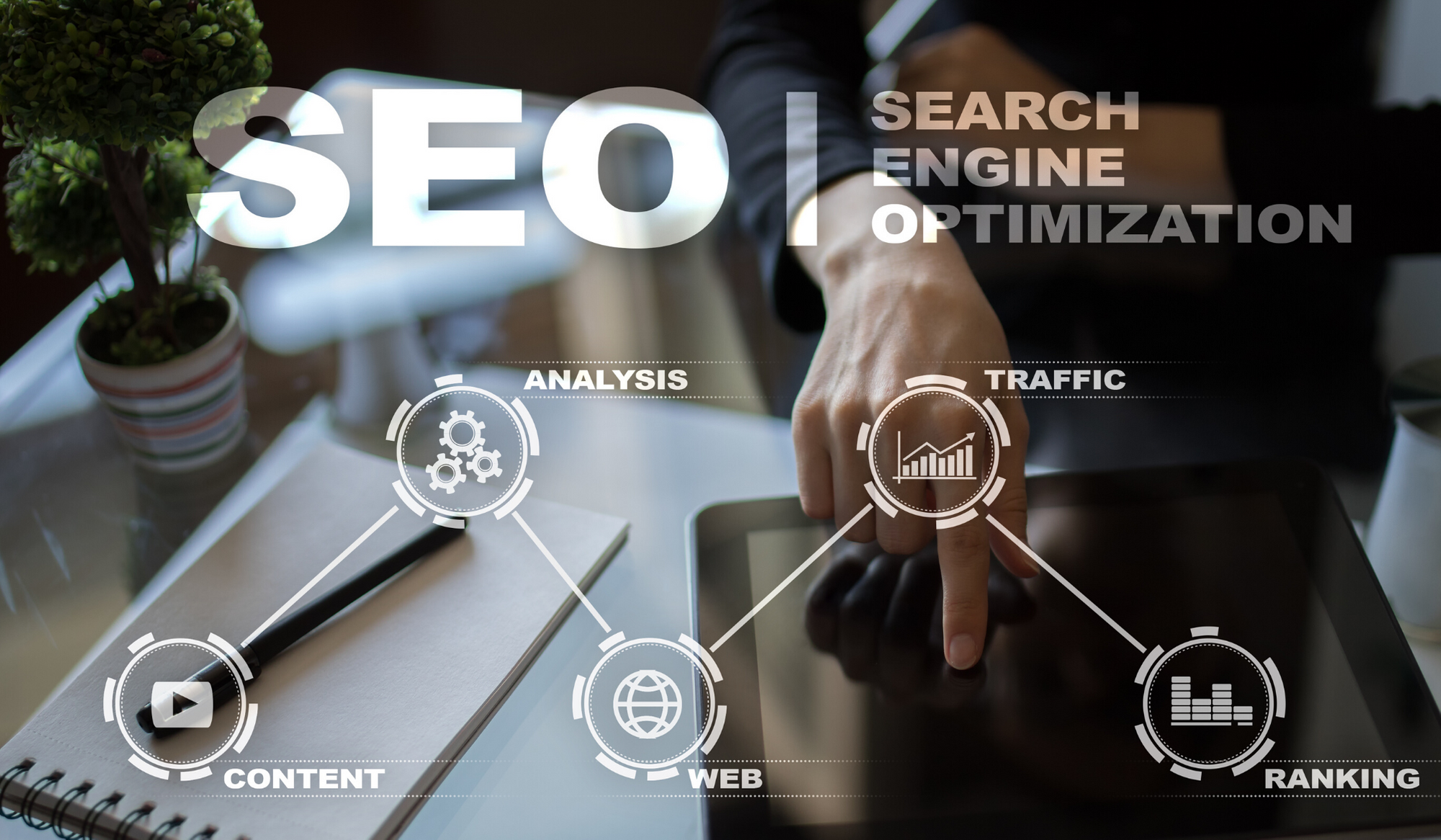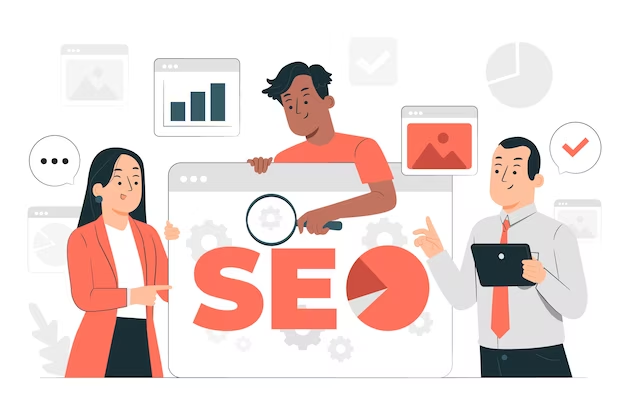Search Engine Optimization (SEO) is the practice of optimizing a website to improve its visibility and ranking on search engine results pages (SERPs). The primary goal of SEO is to increase organic or natural traffic to a website by making it more relevant and authoritative in the eyes of search engines like Google Bing and Yahoo.
SEO (Search Engine Optimization) offers numerous benefits to businesses and website owners making it an essential digital marketing strategy. Here are some key benefits of SEO:
Increased Organic Traffic Cost-Effectiveness Targeted Traffic Credibility and Trust Better User Experience Mobile-Friendliness Higher Click-Through Rates (CTRs) Long-Term Results Competitive Advantage Measurable Results Local SEO Benefits Integration with Other Marketing Channels Reach to us
SEO is an ongoing and evolving process as search engine algorithms frequently change and user behavior evolves. Businesses that invest in SEO are more likely to attract relevant traffic increase online visibility and gain a competitive edge in their industry.
SEO can be broadly categorized into several types based on the focus and techniques used. Here are the main types of SEO:
On-Page SEO: On-page SEO refers to the optimization of individual web pages to improve their search engine rankings and organic traffic. This involves optimizing elements such as title tags meta descriptions headings URL structure content internal linking and keyword usage on the page.
Off-Page SEO: Off-page SEO involves activities performed outside of the website to improve its search engine rankings. The primary focus of off-page SEO is to build high-quality backlinks from other websites as backlinks are a crucial ranking factor for search engines.
Technical SEO: Technical SEO focuses on optimizing the technical aspects of a website to enhance its search engine visibility and performance. It includes tasks such as improving site speed mobile-friendliness crawlability indexing and structured data implementation.
Local SEO: Local SEO is aimed at improving the online visibility of businesses in specific geographical locations. It involves optimizing the website for local searches setting up and optimizing Google My Business listings and acquiring local citations.

E-commerce SEO: E-commerce SEO is tailored for online stores and aims to improve their visibility in search engines to attract relevant traffic and increase sales. It involves optimizing product pages implementing schema markup and improving the overall user experience.
International SEO: International SEO targets audiences in multiple countries and languages. It involves optimizing the website's structure content and hreflang tags to ensure that search engines deliver the appropriate version of the site to users based on their location and language preferences.
Voice Search SEO: With the rise of voice-activated devices and digital assistants voice search SEO focuses on optimizing content to match the conversational queries users make through voice search.
Video SEO: Video SEO aims to optimize video content for search engines to improve its visibility in video search results and video-sharing platforms like YouTube. It involves using relevant keywords engaging titles descriptions and tags for videos.
Image SEO: Image SEO is about optimizing images on a website to improve their visibility in image search results. This includes using descriptive file names alt tags and image sitemaps.
App Store Optimization (ASO): ASO is focused on optimizing mobile applications to improve their visibility and rankings in app store search results making it easier for users to find and download them.
Create high-quality valuable and relevant content that satisfies user intent. Focus on answering users' queries and providing solutions to their problems.
Conduct thorough keyword research to identify relevant and high-traffic keywords related to your business. Use these keywords strategically in your content titles meta tags and headings.
Optimize your web pages for the targeted keywords. This includes crafting compelling title tags meta descriptions and headers. Ensure your content is well-structured and easy to read.
Ensure your website is mobile-friendly and responsive. With the increasing use of mobile devices Google prioritizes mobile-friendly sites in its search results.
Improve your website's loading speed. A faster site provides a better user experience and is favored by search engines.
Earn high-quality backlinks from authoritative and relevant websites. Backlinks are an essential ranking factor and can significantly impact your search rankings.
While SEO is undoubtedly powerful it is not a magic wand that guarantees instant success. It is vital to recognize its limitations to avoid unrealistic expectations. Here are some areas where SEO may fall short:
SEO is a long-term strategy. It can take several months to see significant improvements in search engine rankings. Quick fixes or shortcuts often lead to penalties.
Many websites are competing for the same keywords and search rankings. In highly competitive industries
it can be challenging to outrank established competitors.
Search engines like Google frequently update their algorithms. These changes can impact your rankings
.jpg)
SEO is a long-term strategy that requires time effort and patience. It does not provide immediate results overnight. Ranking high on search engine result pages (SERPs) can take several months or even years depending on various factors such as your industry competition website's current state and marketing efforts. Therefore it is essential to integrate other marketing techniques to supplement your online visibility while waiting for SEO to generate organic traffic.
SEO revolves around search engine algorithms which determine how websites are ranked. Major search engines such as Google frequently update their algorithms to ensure relevant and quality search results. These algorithmic changes can impact your website's rankings leading to fluctuating traffic and online visibility. Staying updated with the latest algorithm changes and adapting your strategy accordingly is vital to overcome this limitation.

SEO is a highly competitive field. Regardless of your industry or niche you will likely face stiff competition from other businesses vying for the same keywords and target audience. As SEO becomes a standard marketing tactic it becomes increasingly challenging to secure top positions on SERPs. Remaining persistent continuously optimizing your website and employing innovative strategies are crucial to stand out in this competitive landscape.
Whether You Are A Small Business Or A MediuSEO relies on search engines to index and rank your website. However search engines have the final say in determining how they interpret and display your content. Despite implementing various optimization techniques there is no guarantee that search engines will rank your website favorably. Therefore it is essential to diversify your marketing efforts by leveraging other channels such as social media email marketing or paid advertising to ensure a broader reach and reduce dependency on search engines alone.m-Sized Firm, Without SEO Services You Cannot Present Yourself In Front Of Your Targeted Audience. Some More Reasons Have Been Given Here:ddd 14 july

User behavior and technology continue to evolve rapidly. The way people search for information online changes and new technologies and platforms emerge. Voice search mobile optimization and Artificial Intelligence (AI) are just a few examples of how the digital landscape constantly evolves. SEO must adapt to these changes to remain effective. Neglecting to follow emerging trends and failing to optimize for new platforms can result in diminished online visibility and missed business opportunities.
